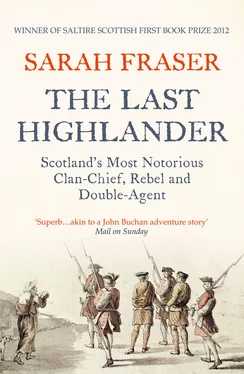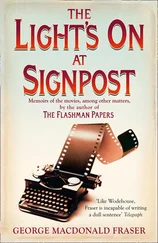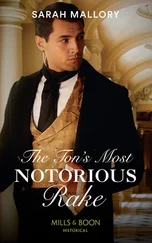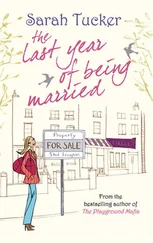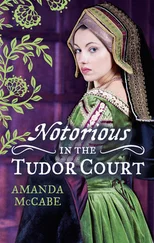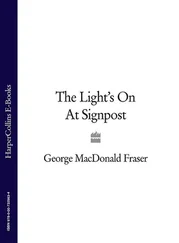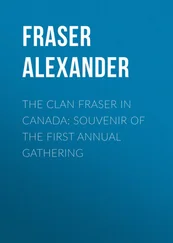The following March, 1696, King William summoned Murray south again to reward him further, creating him Earl of Tullibardine, so that he could be a King’s Commissioner in the next session of the Scottish Parliament. Murray insisted he must have his brother-in-law at his side this time and summoned Hugh to London. The Earl promised Hugh he would be presented at Court and said he would ask the King to make the whole Regiment of Foot over to him. Simon pushed to accompany his cousin. He and Hugh had grown close since Simon left university and Simon now occupied a traditional place in the clan hierarchy: commanding his chief’s soldiers. Murray reluctantly agreed.
After nearly two weeks on the roads, Hugh Lovat, Simon Fraser and their servants reached London, long black boots, full-skirted thick wool coats, linen and wigs all caked with sweat and muck. They found their lodgings and prepared to enjoy the city, keenly anticipating their royal audience. It was the perfect opportunity to make a favourable impression on the King, and who knew what ‘gratification’ might follow – the regiment, a government post perhaps? At Kensington Palace, they met Tullibardine who conducted them into the King’s presence. Lord Lovat was ‘one of the most ancient peers of Scotland … head of one of the bravest clans’. Tullibardine announced. Lovat and Tullibardine ‘could venture to assure his Majesty of their fidelity’. As the Highland chief stepped up to speak, Tullibardine told Hugh to ‘fall upon one knee and take leave of his Majesty’. Ever ‘of a contracted understanding’ Hugh ‘did as he was directed’, Simon later wrote of his cousin. Not for the first time, Simon despaired of his chief’s passivity. Some men did not merit their opportunities.
Before Simon could urge Hugh to re-present himself at Court, Tullibardine was recalled to the Scottish Parliament to deal with the ongoing fears of invasion and assassination. The Earl briefed Hugh and Simon that, all things considered, this was not the moment to bother the King with personal requests. He would be forced to hold on to the Regiment of Foot, he said, ‘till the fears of an invasion should be blown over’. They had heard all this before, Simon told Hugh. Had they come all this way, at great expense, to show the King of England that a great Highland chief would dance a jig before him, to the Earl’s tunes? When Tullibardine ordered them to return to Edinburgh, both young Frasers ignored him.
Instead they met with Tarbat’s son and Alexander Mackenzie, son of the Earl of Seaforth. As a Guards officer, Alexander was familiar with London’s best clubs and watering-holes. It would be chance too for the Mackenzie men to pick up the threads of their relationship with their Fraser cousins. Since the Murrays had taken over, Mackenzie influence at Castle Dounie had ceased.
Hugh and Simon, choked by Lord Murray’s condescension, patronage, expectations and favours, now threw ‘themselves into the hurly-burly of fun-making, love-making, noise-making’ offered by the English capital. ‘Come at a crown ourselves we’ll treat,/Champagne our liqueur and ragouts our meat’, the Highlanders joined in with the songs in the alehouses. ‘With evening wheels we’ll drive o’er the park,’ then ‘finish at Locket’s and reel home in the dark’. Locket’s, near Charing Cross, was a popular gentleman’s club. The area roughly bordered by the Strand, Covent Garden and Charing Cross teemed with life. The theatres around Drury Lane brought taverns, coffee houses and bagnios in their wake. Socialising levelled all the classes, aristocrats, intellectuals, merchants and tradesmen, foreigners, Gaels, and the people who fulfilled all whims and desires. When the young men spoke Gaelic, very loud and very fast, they could talk treason with impunity, though many taverns and coffee houses welcomed Jacobites.
Simon worked on his chief, showing Hugh ‘very plainly, that Tullibardine made a jest of him, and had brought him to London, in order to make his court to King William at Lord Lovat’s expense’. He and the Mackenzies counselled Hugh ‘to break with’ Murray, and free Clan Fraser from its predators. For once, Hugh openly defied his brother-in-law. He sent out a waiter for pen and paper, wrote to Murray, and resigned his commission. ‘I hope … you will be so kind as to bestow it on my cousin Beaufort,’ he added. Simon clapped his cousin on the back. This was the spirit they had looked for in him all these years. Simon followed up Hugh’s letter with one of his own. ‘If your Lordship have use for all my Lord Lovat’s men, I have, next to himself, most influence on them.’ It was a thinly veiled threat to take them away. Tullibardine made his own brother captain of Lovat’s men.
A worried Tullibardine wrote to his wife Katherine, sister of the Duke of Hamilton, who had remained in London, and asked her to find out what the young Frasers were up to. ‘I am extremely angry Lovat is not come off,’ he wrote. ‘I blame Beaufort who I believe occasions his stay till he gets … [Lovat’s] captain’s act.’ Katherine replied that she had seen Hugh. ‘O! He is a sad creature, and keeps the worst of company. It is not fit to tell you here the way he lives,’ she told her husband, ‘but he says … he’ll stay here, and spend of his own, and take his pleasures a while … I’m afraid he’ll fall into some inconveniency.’ Besides the ‘inconveniency’ of drink, Hugh was whoring himself to a physical breakdown and keeping other very ‘inconvenient’ companions.
The merry-making soon stopped with news from Dounie that Hugh’s only son, three-year-old John, had died. He still had his girls, but now no male heir. Simon could not help but be aware that with the infant’s death, the Beaufort Frasers were once again the only male heirs if the illegitimate marriage contract could be overturned. Simon discussed it with his cousin. The Fraser inheritance was nothing to do with an alien clan, he said. Murray had been deceiving him for years about what was best for the Frasers and disguising his real intentions. Even this trip: there was no colonelcy of the regiment or meaningful royal recognition for Hugh Lovat. Retrieve some loss of face, Simon urged him, and use the law to put right and undo what the Murrays had put wrong.
Hugh conceded that his in-laws probably ‘despised him’. He was an easy-going fellow and he had let them do as they liked with his titles and estates. The worm now turned. On 26 March, ‘Lord Lovat obliged’ Simon ‘to send for an attorney … Convinced of his Error, and the injury done to his own family, he … executed a Deed, in favours of Thomas Fraser of Beaufort, his Grand Uncle, Father to … Simon, upon the Failzie of Issue-male of the Marriage, and restored the Succession to the ancient Channel of the Heirs-male.’
While he had Hugh pointing in the right direction, Simon also persuaded him to draw up a legal bond. Lord Lovat bound himself to pay 50,000 Scottish merks to Simon ‘for the special love and affection I bear to my cousin, Master Simon Fraser … and for certain onerous causes and others moving me’. Were Simon to enforce this bond, it would utterly ruin his heavily indebted cousin. Fifty thousand Scottish merks was about £2,750 sterling (or £350,000 in today’s values).
Simon’s motives were so mixed. On the one hand he believed a weak chief threatened the very existence of the clan. He also believed in the unbroken male inheritance of Clan Fraser, and was determined to throw off the over-mighty Murrays. This bond was the Frasers’ security should the Murrays trespass too far and try to marry the heiress, Hugh’s eldest daughter Amelia, away from the male heir, Simon Fraser.
Eventually Tullibardine wrote to Simon. He coldly commanded his lieutenant to escort his cousin home, and then report for duty. Tullibardine was Master of the Privy Council, King’s High Commissioner and ruled Scotland with ‘the authority of a monarch in right of his office, and sometimes a greater power in virtue of his abilities’. The man representing the constitution and the King was supreme. Simon could ill afford to defy him openly. To his face Simon hailed him ‘the Viceroy of Scotland’. Behind Tullibardine’s back he was learning to plot with more craft.
Читать дальше
